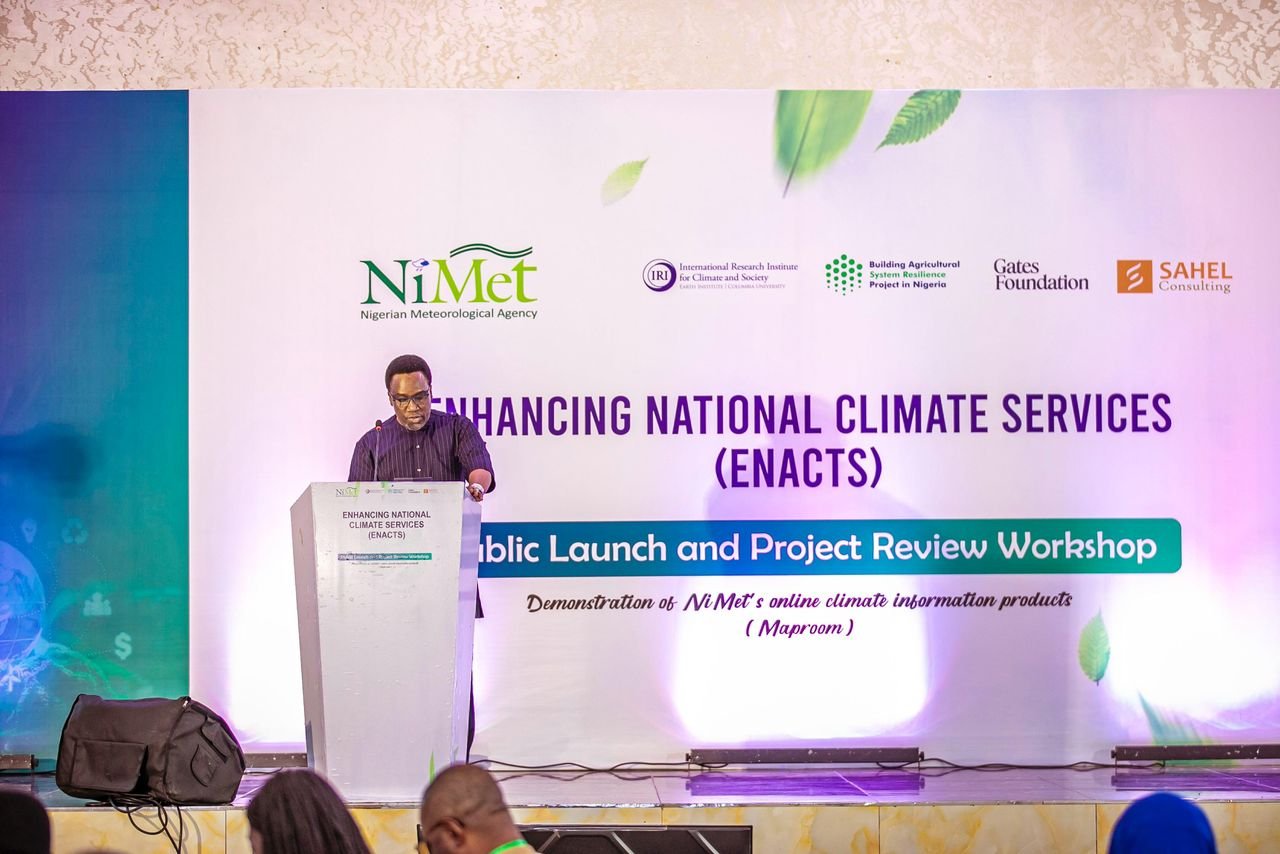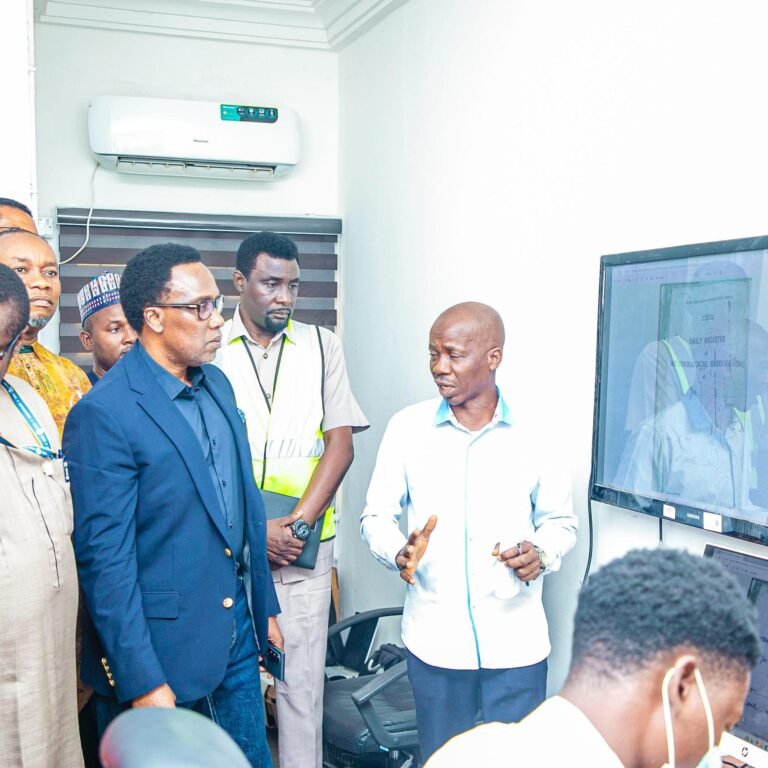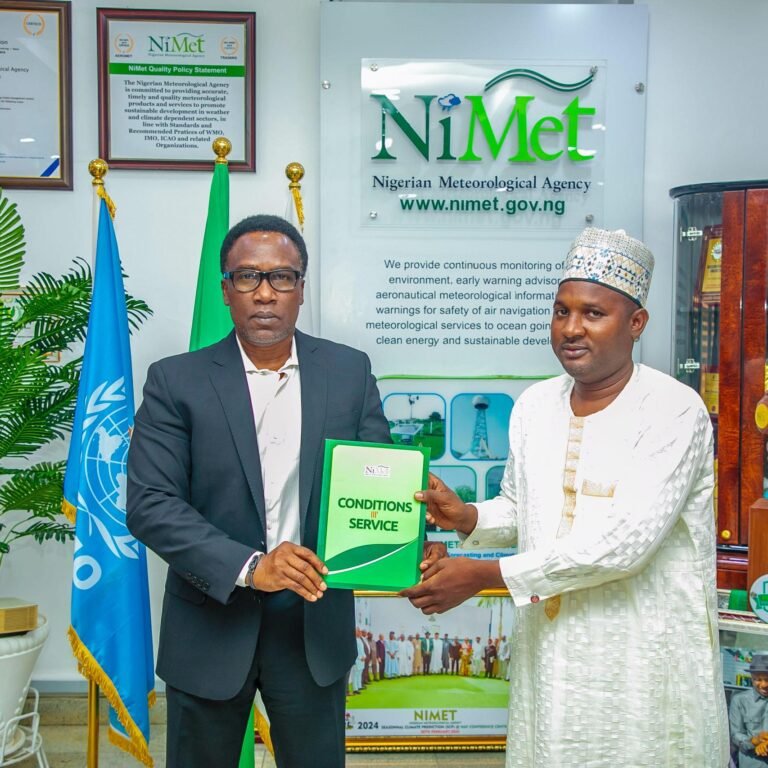
By Ameh Gabriel
Abuja, Nigeria – The Nigerian Meteorological Agency (NiMet), in partnership with Sahel Consulting, the International Research Institute for Climate and Society (IRI), and the Bill & Melinda Gates Foundation, has launched the Enhancing National Climate Services (ENACTS) initiative to transform how Nigerians access and use climate data.
The two-day event, which held in Abuja under the Building Agricultural Systems Resilience in Nigeria Project, featured a Project Review Workshop that brought together key stakeholders from agriculture, health, water resources, the blue economy, and disaster management sectors.
ENACTS combines ground-based meteorological observations with satellite data to produce reliable, user-friendly climate information products. A key highlight of the launch was the unveiling of NiMet’s Maproom portal an online platform providing more than 40 years of high-resolution climate data at a 4km grid scale. The Maproom offers interactive tools for analyzing rainfall patterns, temperature forecasts, drought risks, and dry spell alerts, enabling evidence-based planning across critical sectors.
Delivering the keynote address, NiMet’s Director-General and CEO, Prof. Charles Anosike, described the initiative as “a vision brought to life through consistency, partnership, and a shared commitment to national development.” He emphasized that ENACTS marks a transformative step in making climate information “accessible, relevant, and actionable for all Nigerians.”
Prof. Anosike noted that while the Maproom platform has cross-sectoral benefits, its impact on agriculture is particularly significant. He linked the project to President Bola Ahmed Tinubu’s Renewed Hope Agenda, stressing that access to timely climate data will help farmers adopt climate-smart practices, strengthen food and nutrition security, and improve resilience against weather-related shocks.
“By empowering farmers and other stakeholders with precise climate information, the ENACTS initiative will not only support national food security but also enhance early warning systems and safeguard livelihoods from climate-related disasters,” he added.
During breakout sessions, participants engaged in sector-specific discussions and reviewed project milestones. Stakeholders expressed optimism that ENACTS would catalyze innovation, strengthen resilience, and improve service delivery in climate-sensitive areas.
By bridging Nigeria’s climate information gap, ENACTS is expected to advance climate-smart practices, bolster disaster preparedness, and reinforce NiMet’s standing as a continental leader in meteorological services all while supporting the Federal Government’s goals on food security and sustainable development.







